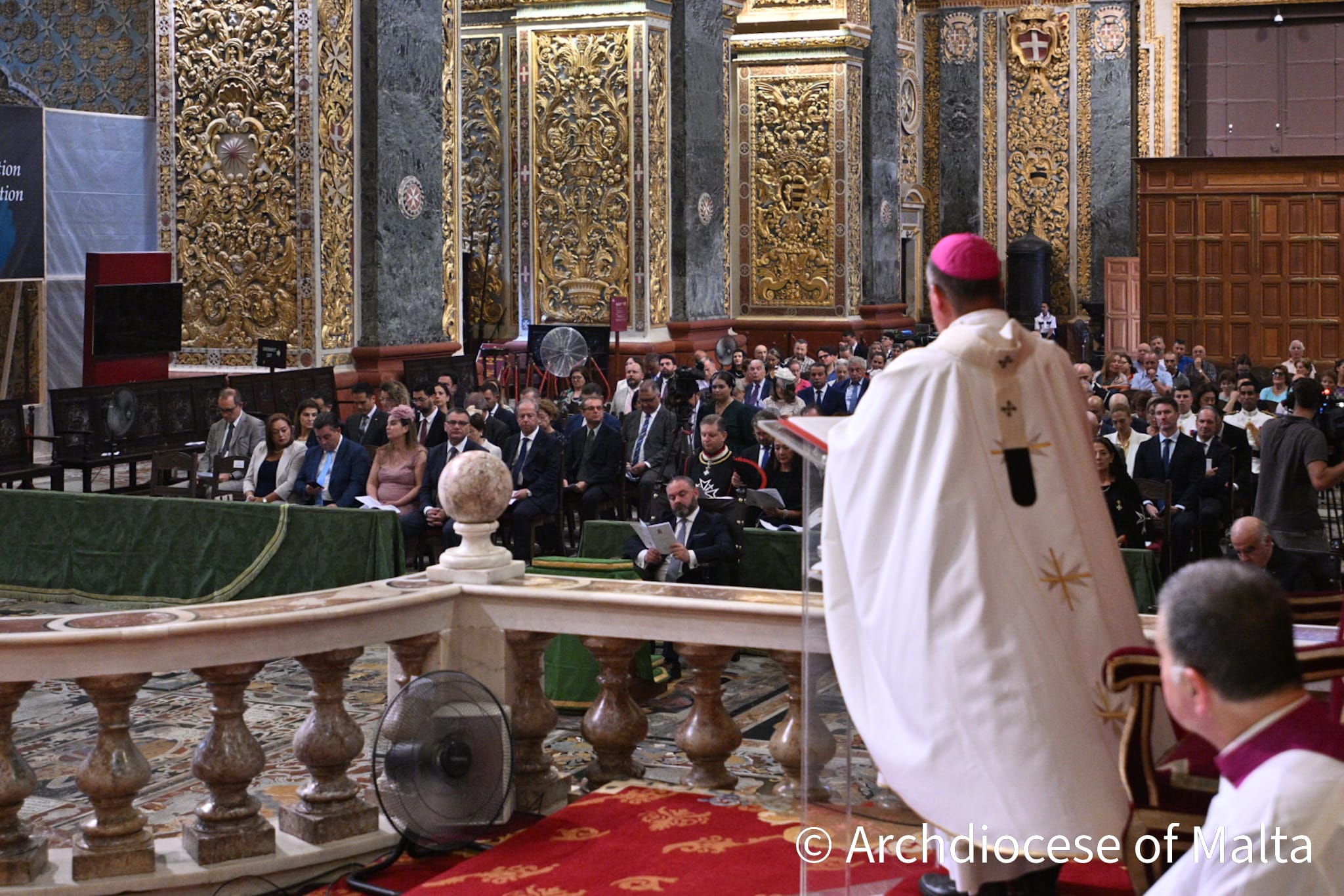Homily by Archbishop Charles Jude Scicluna
Fifty-nine years ago today, Malta celebrated its birth as a sovereign and independent nation governed by the Maltese. For the first time, our country was no longer dependent on the decisions made by others on our behalf. We were no longer a people subject to external governance. Governance now rested in the hands of our citizens, who, every five years, got to choose whom to entrust with this responsibility.
As a sovereign state, we might have unwittingly assumed that we had once-and-for-all eradicated those dependencies that impeded our progress and fulfilment. However, almost six decades after this historical moment, it would be pertinent for us to pause and reflect on the true significance of our independence and assess how autonomous we really are.
One cannot help but notice that as we walk through our streets today, we are met with the sight of a people often ruled by commercial and personal interests. The question we need to ask, is: In our pursuit of economic success, have we created new dependencies? Have we placed rapid financial gain and rampant development ahead of the wealth of our sovereign nation? Have we placed rapid financial gain ahead of our quality of life and ahead of our values as Maltese – casting aside the worse off in our society in the process?
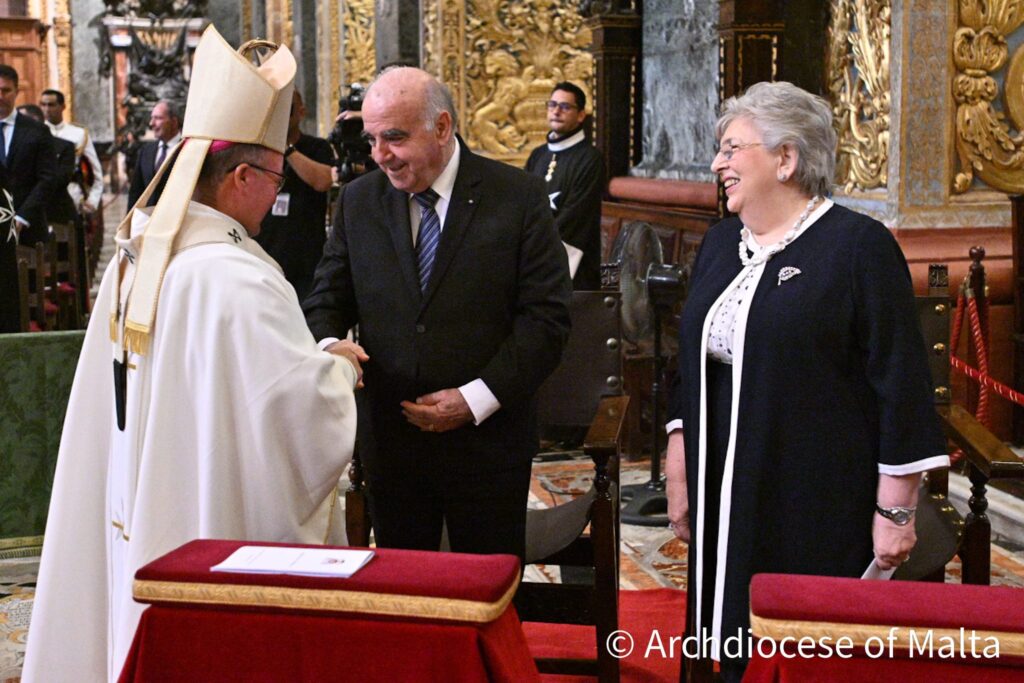
In our pursuit of economic success, have we acquiesced to the unacceptable reality of allowing fellow Maltese to endure poor living conditions and subsisting on wages that can barely get some through a week, never mind a month?
In our pursuit of economic success, have we exploited those whom we have invited into our country to serve our basic needs and subjected them to intolerable conditions that is tantamount to slavery? Have we gone from being the colonised to the colonisers?
Yes, we are guilty of all these things. And we should feel ashamed.
We might occasionally become aware of the plight of the poor when confronted with certain statistics or when we contribute to a fundraising marathon. However, the call to action goes way beyond this. It demands active listening; it demands action and it demands the compassionate focus of a loving heart.
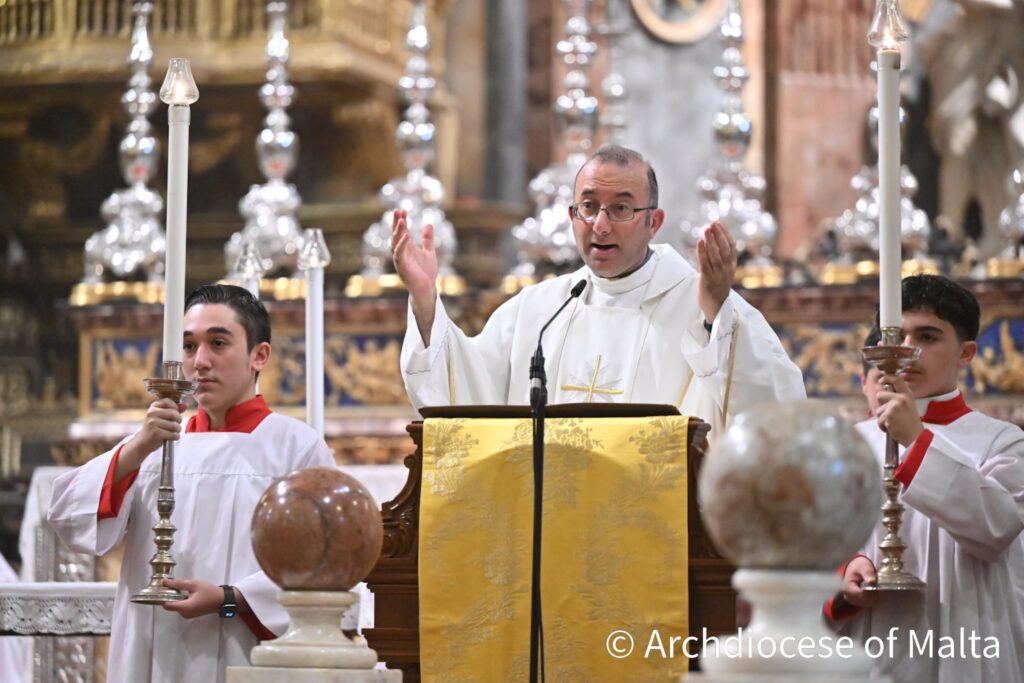
Heeding our neighbour
Ten years ago, during his visit to Lampedusa, Pope Francis forcefully and unequivocally condemned the globalisation of indifference. Like the rich man in the Gospel we read today, we are so engaged in chasing after success, materialism and recognition that we often fail to notice the homeless human beings lying on our doorstep. We do not even acknowledge, let alone, heed them!
Let’s not make the mistake, however, of viewing the poor as beneficiaries of our care and generosity.
It is true that we can become accustomed to almost anything, but there are certain matters we must never grow complacent about. The fact that an increasingly large number of people are sleeping on our streets and that hundreds of our brethren have become dependent on soup kitchens for their nourishment is scandalous. We must never accept these situations as normal!
Let’s not make the mistake, however, of viewing the poor as beneficiaries of our care and generosity. And let us certainly not encourage those experiencing difficulties to apply for ‘social benefits’ to which they are not entitled and that are subsequently acquired in a fraudulent manner. This, along with the corrupt practice that all too often accompanies it, is an act of theft from our nation and an abuse of the sovereignty our forefathers worked so hard to achieve fifty-nine years ago.
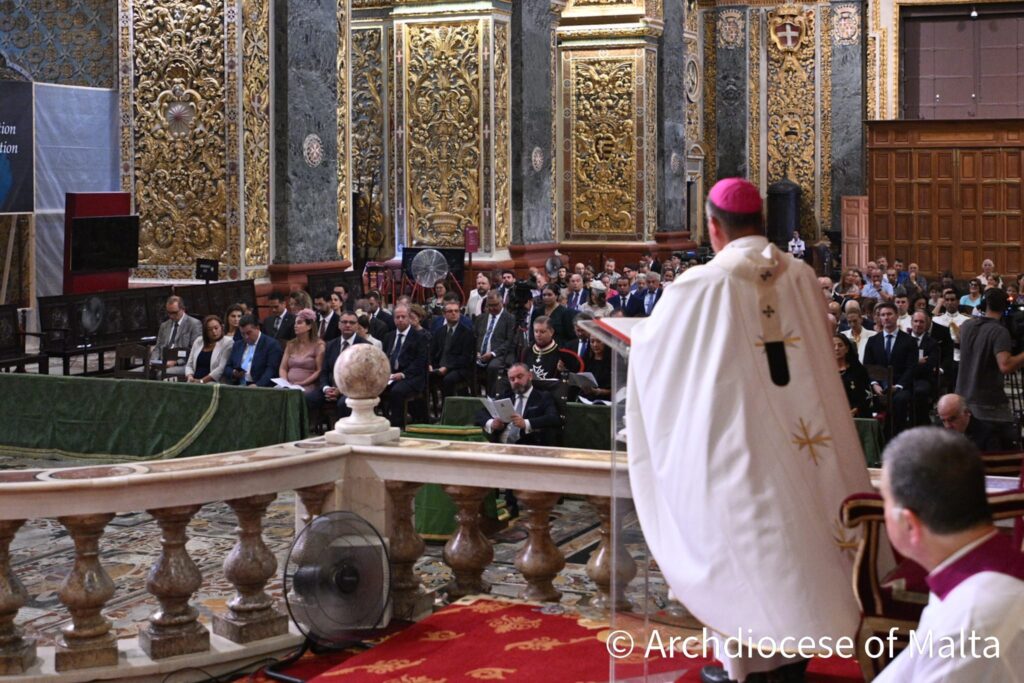
Rather than merely speaking about the poor, we must start communicating with them! We need to open up our hearts and society, not exclude those we usually send away to wait near the front door for a morsel of bread (Luke 16:20). We need to invite them in to occupy the central space. This space is an opportunity for an encounter, for a meeting, where the poor not only become our friends but also our teachers.
Only when we create opportunities to encounter our brothers and sisters in need will we give rise to the possibility of genuine dialogue with them, and truly be living in accordance with the aspirations of a liberated and united people.
If we are to take the poor seriously rather than pay lip service to their presence among us, one of our priorities should be to consider how our decisions affect those who are the most vulnerable. Will our decisions end up further burdening the poor and making them more dependent? Or will our decisions create the conditions, structures and opportunities necessary for these brothers and sisters of ours to get back on their feet?
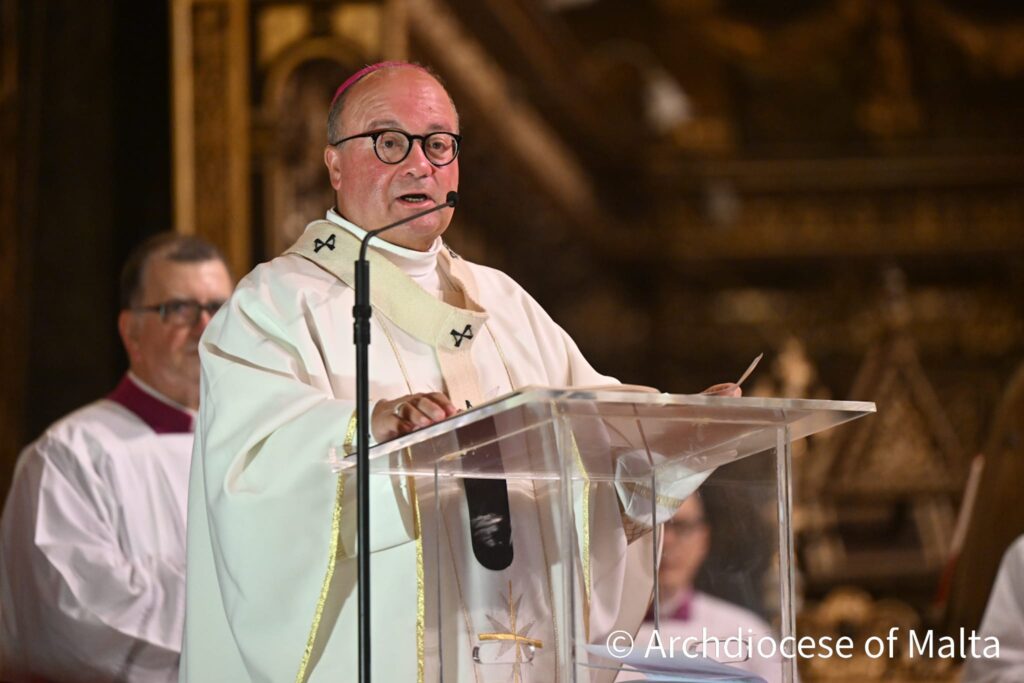
Listening to the cry for justice
In the Responsorial Psalm, we heard how “the poor man called and the Lord heard him” because His ears are always “attentive to their cry” (Psalm 34: 6,15). We must recognise that, as a country, we often excel when called to respond to the immediate needs of those in distress. However, if we aspire to a model where the poor are truly our brothers and sisters, with their dignity and all their rights, we must understand that this cry of the poor is also a cry for justice. Taking this cry for justice seriously means that we cannot evade the questions —often uncomfortable ones— regarding the social, political, and economic structures that allow poverty to persist and, even worse, to grow in our country.
We cannot allow a climate to persist where the poor are treated with disdain and the foreigners invited into our country to serve us, are despised and insulted under the false guise of nationalism.
In a wealthy society like ours, poverty should cause us a deep sense of embarrassment! We need to ask why there is poverty around us and why it is increasing.
It is evident that there are systemic issues in our economy and politics that contribute to this plight. An economic system that does not work in favour of everyone, that destroys the environment and that results in a diminished quality of life, requires restructuring, transformation, and renewal.
We cannot continue to rely on economic metrics that fail to take into consideration the quality and dignity of life. We cannot allow a climate to persist where the poor are treated with disdain and the foreigners invited into our country to serve us, are despised and insulted under the false guise of nationalism. Perhaps the greatest challenge of our times is to contemplate and revolutionise a system to which we have become bound, and to visualise a future beyond it.

Working towards an economy of life
After fifty-nine years of independence, it is imperative that we reflect on whether we are on the right path. What vision do we hold for the future? Where are we heading? When we start asking these questions, we embark on the long and difficult journey towards justice. The significance and urgency of these questions grow within the current discourse our country is engaging in regarding the necessity of forging a new economic model for the years ahead. It is not the Church’s role to provide detailed and technical solutions. These should be entrusted to the capable authorities in dialogue with experts, social partners, and civil society. Yet is our duty as a Church to raise these issues and —guided by the teachings of Pope Francis— to support and encourage the transition from an economy that kills to an economy of life [1].
The road to a solution starts by openly admitting that no economic gain can ever justify embracing an economy that impoverishes and even kills other human beings.
It is imperative for us to ask what kind of life we are providing for those workers who, to cope with their daily lives, have to sacrifice their health and time of rest with their families. How comfortable are we with an economy built on the exploitation of our natural environment? What life are we offering thousands of foreign workers who are living in slave-like conditions? Not to mention the dozens of workers who tragically lose their lives or sustain serious injuries on construction sites every year. There are no easy or simple answers to these questions. However, the solution certainly does not lie in ceasing to ask and seek. Nor does the solution lie in looking away. The road to a solution starts by openly admitting that no economic gain can ever justify embracing an economy that impoverishes and even kills other human beings.
Sixty years ago, our forefathers feared that we could not stand on our own two feet and that the country’s economy would collapse once we gained independence. History has proved that through hard work and the sacrifices we have made, the change led to something better. Today, as we celebrate Independence Day, let us pray for our country to be freed from dependence on the idols [2] of our times that push us towards always having more and from the rat-race that ends up crushing us humans and our common home.

The reality is that “nobody can save himself”[3]. By God’s grace we will, hopefully, not end up like the rich man in the Gospel who realised this truth when it was too late. Called to freedom in love (Ga 5:13), we pray to continue growing together as a nation free from the burden of injustice and indifference. It is only when we stop ignoring the sores of the Lazarus of our times (Lk 16:20-21) that our wounds will heal (Is 58:8). It is only when we are freed from the idols that alienate us that we will be able to follow the road of charity and justice that frees the poor from their misery, and all of us from the bonds of the “idols of wealth”[4] that blind and deafen, and that deprive us of our independence.
✠ Charles Jude Scicluna
Archbishop of Malta
